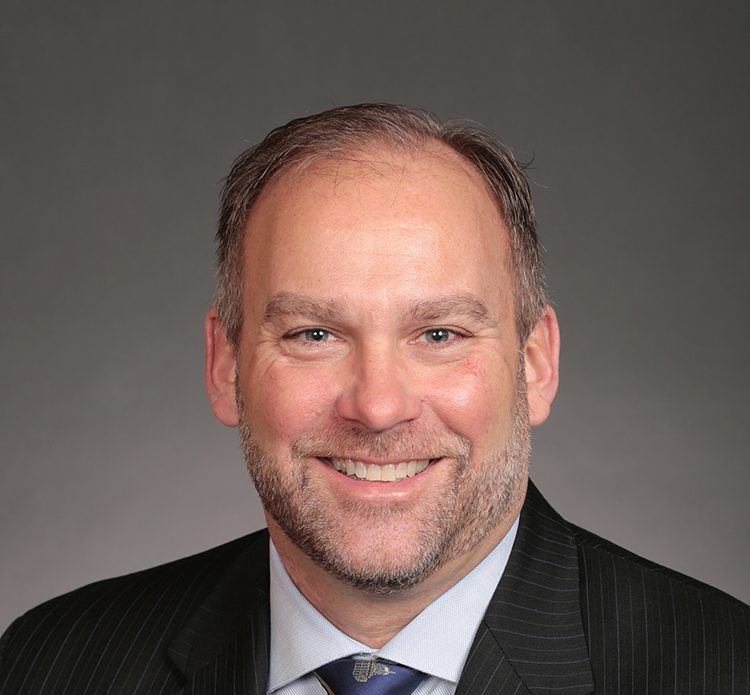Week 3! Already, I have been humbled by the tenacity displayed by my fellow lawmakers; be it in debate or in committee, my colleagues have continuously shown up with their minds geared toward the common well-being.
Additionally, I must take a moment to express my gratitude for all my constituents who have reached out to my during my first few weeks back in session. By reaching out, you’re keeping the channel of communication between lawmaker and private citizen alive for yet another generation, thus practicing one of the great freedoms our constitution provides.
In this edition, I’ll outline a number of bills that have been drafted this session that seek to address child care issues that we attempted to address during the 2020 session. Child care was already a high priority for the Iowa House Republicans, but the frustrations mounted by COVID-19 only amplified the issue.
I’ll also provide some exciting statistics regarding a staple of Iowa’s nationally regarded education standard-the community college system, along with promising updates on the continued effort to provide rural Iowans with much-needed broadband connectivity.
Continued Pattern of First Amendment Issues at Regent Schools
This week, the Government Oversight Committee heard testimony from Michael Brase, a University of Iowa College of Dentistry Student, who in October, responded to a program-wide email from the College of Dentistry condemning Executive Order 13950 signed by President Trump regarding workplace unity and training. Mr. Brase “replied all” to the email, which was sent to over 1,000 members of the faculty, staff, and student body, asking for the College of Dentistry to clarify their positions on the executive order and why they condemned it.
In the email thread that followed several people replied, many in opposition to Mr. Brase’s position. However, one professor replied who expressed support for Mr. Brase’s questions and shared his experiences with a lack of multiple viewpoints being allowed in the College of Dentistry. Which prompted one student to remark on the opportunity before them to continue a discussion on these subjects.
Unfortunately, a continued discussion with everyone’s viewpoint being respected is not what followed. Instead, Mr. Brase received a letter from the Collegiate Academic and Professional Performance Committee (CAPP) telling him that his emails were deemed “unprofessional” and that he was to meet with CAPP for a “Professional Misconduct Review.” The letter informed him that potential outcomes included professional probation and could face a dismissal recommendation.
Feeling that his First Amendment rights were being violated and unsure of the official process to resolve such an issue, Mr. Brase emailed state legislators with his problem. Representative Steve Holt got involved and met with faculty from the College of Dentistry and two days later Mr. Brase received an apology letter from the Dean affirming that the administration “were wrong” in how they handled the issues surrounding the communications.
While becoming more high profile, Mr. Brase’s experience is not a single instance of First Amendment issues students at Iowa’s public universities. There is still an ongoing court case in the U.S. Court of Appeals for the Eighth Circuit involving the University of Iowa’s unfair application of rules regarding student groups that has led to religious groups losing their status on campus. The Government Oversight Committee and House Republicans will continue to shine a light on these issues that happen at our publicly funded institutions and ask what they are actively doing to prevent future First Amendment neglect.
House Advances Important Childcare Legislation
This week, the House Human Resources Committee passed four bipartisan bills related to child care. These bills are part of a legislative package brought forward by House Republicans to increase child care workforce, increase provider rates to maintain existing child care facilities, provide incentives to develop new child care facilities, and support hard-working families afford the high cost of child care.
Now, more than ever, child care is a key factor in getting Iowans back to work throughout this public health emergency. Unfortunately, 81 Child Care Centers and 41 Child Care Development Homes have closed since March making it even more difficult for parents to find affordable child care for their family.
The four bills that are now eligible for consideration on floor of the House:
- House Study Bill 3 establishes a state funded off-ramp program from Child Care Assistance (CCA) that will gradually increase cost-sharing from families as they increase their income. This bill removes the ceiling on Iowan’s ability to be successful. You often hear about the cliff effect in government programs – where individuals are stuck in welfare dependency and the program is limiting their ability to take a raise or promotion. This bill addresses the cliff effect in Child Care Assistance.
- House Study Bill 2 provides significant rate increases to child care providers accepting Child Care Assistance. By increasing all child care provider rates up to the 50th percentile of the most recent Market Rate Survey and providing increases to quality child care programs, this bill will annually increase money going towards child care by $13.3 million.
- House File 6 establishes a public/private partnership to expand the child care workforce in the state. This bill will help recruit and retain child care providers in Iowa by providing matching funds to communities that match the state funds.
- House Study Bill 7, as amended by the committee, will allow non-registered child care homes to increase by one school-aged child. This bill is important for rural Iowa parents who do not have access to a child care center in their area.
Additional bills from House Republicans on child care will be considered in the House Ways and Means Committee and the House Economic Growth Committee. In total, this child care legislative package will take significant steps to address child care access and affordability throughout the state.
Even with Declining Enrollments, Support for Iowa Community Colleges Rose During Last Decade
Iowa’s fifteen community colleges fulfill two roles in the state’s education system. Community colleges serve as the home of worker training programs while also giving students another option for completing the first two years of their college education. This dual role requires a significant level of support from Iowans. House Republicans have ensured that the state budget maintains a strong level of support for these schools.
When Republicans took back control of the Iowa House in the fall of 2010, Iowa’s community colleges were experiencing growing enrollment as the country tried to recover from the Great Recession of 2008 & 2009. For the 2010-2011 school year, community colleges were educating and training 106,597 students. That year’s enrollment would represent the high-water mark for the decade, as an ever-growing number of Iowans entered the workforce.
State funding for community colleges did not follow enrollment’s downward trend. In fact, state support for this part of Iowa’s education system grew significantly while enrollment declined. Funding to community colleges in Fiscal Year 2011 amounted to $159.6 million. Over the next decade, support for these institutions grew to the current level of $208.7 million. This amounts to a 30.7 percent increase in state funding. This trendline occurred even with several years where the overall budget was status quo or declining. Community colleges were maintained even during the tough budget times.
While the decade-long increase in total funding is significant, its impact is even greater when it is considered at the individual student level. For the 2010-2011 school year (Fiscal Year 2011), the state’s financial support amounted to $1,497 per student. For the current school year, state funding per community college student equals $2,511. This comes to a 67.7% increase in state funding per student over the previous decade.
Community colleges have served as a critical component in Iowa’s economy while also helping students jumpstart their college educations. And while fewer Iowans have chosen to use these facilities during the past ten years, the Legislature has nonetheless expanded its commitment in the state budget to community colleges.
IDALS Invites Iowa Families to Apply for the 2021 Century and Heritage Farm Program
On Monday, January 25, 2021, the Iowa Department of Agriculture and Land Stewardship (IDALS) issued a press release in which Iowa Secretary of Agriculture Mike Naig encouraged eligible farm owners to apply for the 2021 Century and Heritage Farm Program now. The program was created by IDALS and the Iowa Farm Bureau Federation to recognize families who have owned their farms for 100 years and 150 years, respectively.
To apply, download the application on the Department’s website at iowaagriculture.gov/century-and-heritage-farm-program. To be included in the 2021 Century or Heritage Farm Program completed applications must be received by the Department by June 1, 2021.
This marks the 45th anniversary of the Century Farm program, which started in 1976 as part of the Nation’s Bicentennial Celebration. To date, more than 20,000 farms from across the state have received this recognition.
This is the 15th anniversary of the Heritage Farm program; more than 1,000 farms have been recognized since this program began in 2006. To search for previous Century and Heritage Farm recipients, visit centuryfarms.iowaagriculture.gov. Photos from past recognition ceremonies are also available on the Century and Heritage Farm Program website. The ceremonies recognizing the 2021 Century and Heritage Farm families will be held at the Iowa State Fair on Aug. 19-20, in the Pioneer Livestock Pavilion.
Reducing Regulatory Hurdles for Internet Access
House Republicans have made it a priority to increase Iowan’s access to broadband internet. Part of this focus has been on reducing regulations and removing regulatory barriers. The following bills are being considered by the Information Technology committee to increase broadband access to Iowans:
HSB 124 – clarifies the use of existing easement to more quickly and efficiently provide internet to those with an electric easement already running through their property.
HSB 128 – allows municipalities to join together and jointly finance a telecommunications utility. This adds efficiencies, both for raising funds and deploying resources so more Iowans can have access to internet.
House Republicans Advance Law Enforcement Bills for Iowans
The Public Safety Committee is moving quickly to address bills in committee. In the past three weeks, there have been subcommittee and committee meetings on a variety of issues. Below are some of the bills the committee has acted on:
- House Study Bill 72 – Public Safety Equipment Fund – This bill would create a fund for public safety equipment needs. This money would not revert back to the general fund each year and allow DPS to plan for equipment needs such as; ballistic vests, state patrol vehicles, and other necessary safety equipment.
- House File 63 – Cold Case Unit – A cold case investigative unit would be created within DPS. The unit would assist with investigations related to unsolved murders, missing children and missing adults.
- House Study Bill 76 – Safe and Sound Program – The Safe and Sound program would allow students and the public to anonymously report crimes, threats, violence, mental health concerns and other issues directed at schools and students. These reports would go to law enforcement for appropriate review and action. The goal of this program is to stop crimes before they occur, help students facing a crisis and encourage a safer school environment.
- House Study Bill 115 – Private Information – HSB 115 would allow peace officers, judges, and county attorneys to have their personal information removed from a county website to protect their privacy. This information would include addresses and phone numbers.
Representatives are currently working to get these bills ready for a committee vote in the next week or two.
Thanks for tuning in for another week. As always, should you have questions, comments, or concerns, do not hesitate to reach out. I have already been very fortunate to have received many well wishes and thoughtful questions during these first few weeks.












